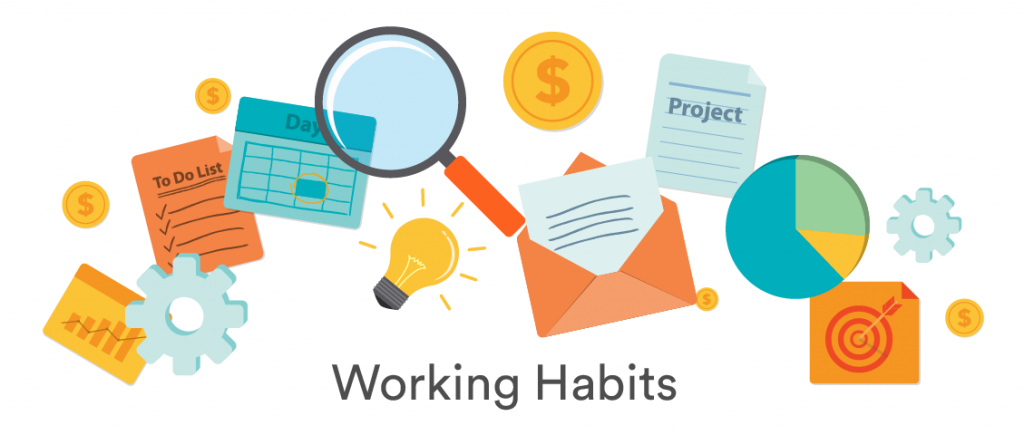It can be hard to find time within the working day to be productive, let alone to read a blog post about being productive (oh so meta). Unfortunately, this means that the majority of you reading are likely outside of your working day, perhaps sat in front of the television, or worse, with your dinner balancing on the edge of your laptop. I hope that the limited time you can spend reading this article can help you be more productive during your working day, and use the valuable time outside of that to spend with the big 3 Fs – family, friends, and food.
The inconvenient truth to being productive is to find work that you really enjoy, in a working environment you look forward to, and with people you like working with. I’ve found that people who are in this situation are not only more productive, but don’t mind going the extra mile after work too. So, I could preach about finding a job that you love (and maybe I will in the future), but for now I’ve decided to document a few tips that I find increase my productivity, in the hope they may be useful to you too. I’ve consulted with the wider team here at AC to ensure there is a good variety of suggestions.
I’ve separated my tips into two areas, so you can pick whichever is most applicable to you (and be more efficient doing so).

- Take a leaf out of Shakira’s book, work wherever, whenever. I think if you don’t feel like working – don’t. But do later when you feel like you can cover some ground on what you have to do. Similarly, if you need to work from the garage because you have a car almost as unreliable as mine, then do.
- Get out of the office and away from your desk. Taking regular breaks makes a big difference, as half the useful thinking we do happens when not staring at a computer screen. Do a bit of research on Gemba walks – this is the sort of thing I’m talking about.
- Ask questions, particularly the obvious ones. Sometimes, when you ask the obvious question, you find that everyone has been thinking the same thing, and really you were working hard on something that may not have been right, or even what you thought it was. Sometimes, everyone thinks you’re crazy and you’ll get hard stares across the meeting room. Personally, I think the trade-off is worth it.
- Accept that sometimes it is impossible to do everything. You could be superman (the lame work-productivity kind), but sometimes you have to accept you have too much work. You can take my tip here and prioritise it, but often you may want to sort your work according to the Eisenhower Matrix to determine what you should do, what you should delegate, what you should schedule for a later date, and what may unfortunately never be done.
- Write it down (coherently). If you hear something useful, have an action to take, or anything to remember, make sure you write it down. It doesn’t really matter if this is on pen and paper or one of the many great applications out there; just use the best tool for the job. If you write something down, you’re much more likely to remember it, and its details, later.
- Talk to your team, friends and strangers at the train station. The best thoughts and ideas come from frequent collaboration and communication with people who come from all sorts of different backgrounds and cultures. To do this, you’re going to need to be approachable, patient and open to criticism, which is easier said than done.

- Make a prioritised, categorised To-Do list. It doesn’t have to be pretty, but it does need to exist. I know lots of people have a To-Do list, but only a few (probably those who sat on the same training courses as me…) have one that is in priority order – thinking about importance and urgency, that is categorised based on what the activity involves. It makes a world of difference in knowing what you need to work on, when (and inevitably for some tasks, never). There are plenty of apps out there which can help you here: Remember the Milk, Trello with Matrix Power-Up, Wunderlist (Discontinued), to name a few.
- Store the work you’re doing in the cloud. There are two main reasons here:
1. You can’t lose everything if it’s backed up online
2. You can work on it collaboratively with others
I tend to use the Microsoft Suite here, so OneDrive. If your role allows for it, why not start making any documentation you do available and open by default? Use tools like Confluence, Evernote, OneNote, Notion or SharePoint to facilitate. Similarly, sticking key information on a team whiteboard, physical or virtual, can be good for collaboration.
- Use applications that make your everyday work easier. Find tools that facilitate the work you’re doing, rather than being the work themselves. Tools I’ve found assist me with my work include Notepad++, Postman, Microsoft Snipping Tool, 7-Zip, Google Calendar and WinMerge.
- Find out if it’s possible to integrate the tools you’re using all the time to increase productivity. This could include integrating Slack and Jira to get useful updates on issues you may be watching, or Trello with Outlook to easily create a card off the back of (yet another) email. There are all sorts of applications that integrate now, and often for free, so check out what’s possible.
In short, define the work you have to do, when it needs to be done and work out what you can delegate. It’s always better to know a little bit about that email that just came in, rather than having never looked at it. Work when you feel like you can make good progress, from where you need to. Look after yourself, take time away from the screen, and don’t rush into decisions.
If you’d like to hear more about any of the tools mentioned in this blog post or are interested in the integrations that AC can offer, please get in touch.





